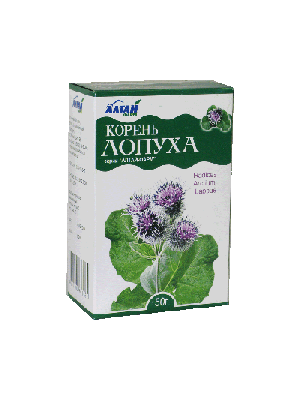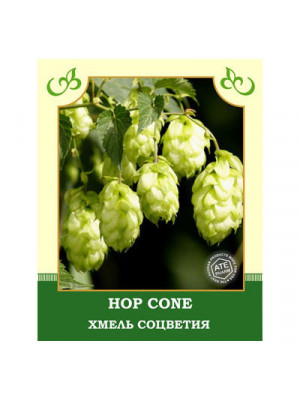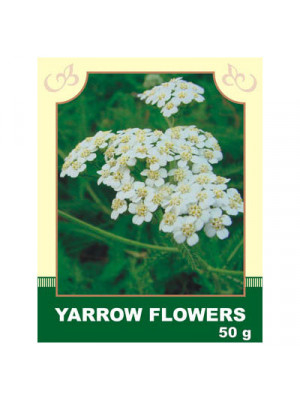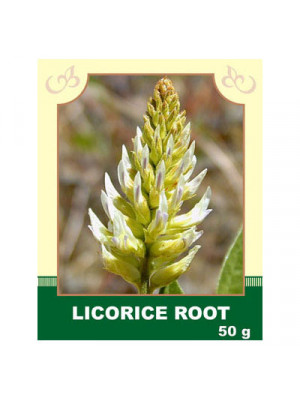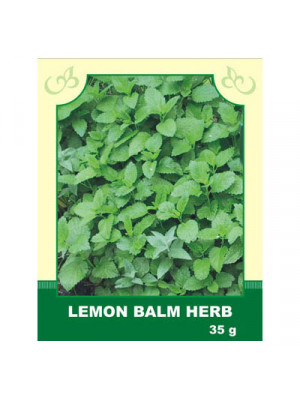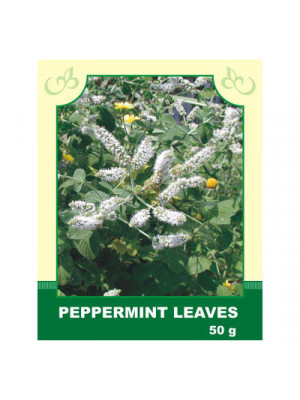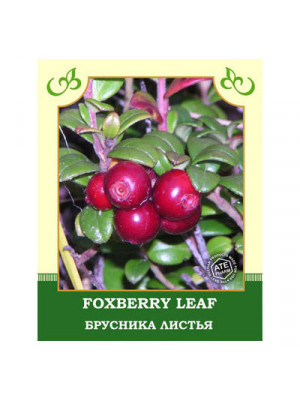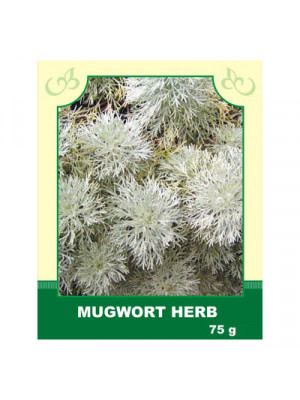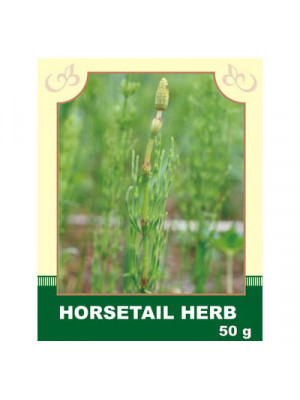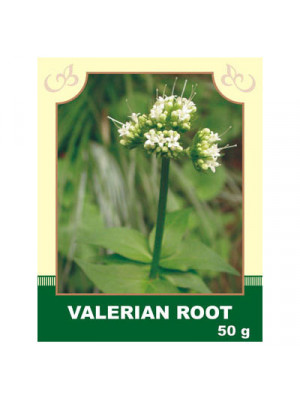Herbs
Internally, the root is taken as a diuretic and cleansing agent in the following cases:
- For diseases of the urogenital organs;
- In gout, rheumatism;
- In diabetes;
- For hemorrhoids;
- In chronic constipation;
- For menstrual irregularities;
- In the treatment of skin diseases;
- For allergic reactions.
Method of application and dosage: Steep 1 tablespoon of roots in 200 ml of boiling water, heat in a water bath for 30 minutes, infuse at room temperature for 10 minutes, strain. Bring the infusion to the original volume with boiled water and take internally 1/2 cup 2-3 times a day before meals.
Externally, the root is used:
- Against hair loss and dandruff;
- In the treatment of eczema, ulcers, and purulent wounds;
- For inflammatory processes of the mucous membrane of the oral cavity, throat.
Steep 1 teaspoon of roots in 400 ml of boiling water, infuse for 8-10 hours.
Contraindications: Individual intolerance.
$6.99Internally: Taken for kidney inflammation, irritation of the bladder, dropsy, gastritis, jaundice, various liver diseases, and insomnia. A water infusion stimulates appetite, enhances digestion and urine secretion, has a calming effect on the nervous system, reduces and stops spasms, alleviates pain, reduces inflammatory processes, and has anthelmintic, mild laxative, and gentle sedative effects.
Method of application and doses: Steep 2 tablespoons of raw material in 500 ml of boiling water, infuse for 2 hours, strain, and take 1/2 cup 4 times a day before meals.
Externally: The infusion is used to strengthen hair and as a pain reliever in the form of a lotion. For the treatment of gout and rheumatism, a ointment is prepared from the powder of dried "cones," which is successfully used for painful ulcers. For compresses and rinses: 3 tablespoons of raw material are steeped in 200 ml of boiling water, infused until cooled, strained, and used as directed. Mix 1 tablespoon of hop "cones" powder with 1 tablespoon of unsalted pork fat or fresh butter to use as an analgesic ointment for bruises and rheumatic pains.
Contraindications: Individual intolerance. Poisonous plant, requires caution in use.
$6.99Internally: Taken as a hemostatic agent for intestinal and uterine bleeding, dysentery, inflammatory diseases of the bladder, ovaries, gastritis with low acidity, diarrhea, ulcers of the stomach and duodenum, liver diseases, hepatitis, cholecystitis, and angiocholitis, cough, and colds. Also used as a calming remedy for neurosis, hysteria, and hypertension.
Method of application and doses: Decoction - 1 teaspoon in 250 ml of boiling water, simmer for 5-10 minutes over low heat, strain. Drink 1/2 cup 3 times a day. Tincture: 30 g of dry herb is infused in 100 ml of vodka, infused in a dark place for 1 week, strained, and taken in 20-30 drops 3 times a day before meals for dysmenorrhea, angina, and intestinal spasms.
Externally: The decoction of yarrow is very effective when used locally for small cuts, abrasions, scratches, toothache, herpes, focal baldness, and lichen. For bleeding from the eroded cervix, tampons soaked in yarrow infusion or decoction are used. In cases of prolapsed hemorrhoids and bleeding hemorrhoids, compresses soaked in a cold yarrow decoction are applied.
Contraindications: Individual intolerance, during pregnancy, and for those suffering from allergies.
$6.99Internally: Taken as an expectorant for lung diseases accompanied by cough; as an anti-inflammatory spasmolytic for gastritis, peptic ulcer of the stomach and duodenum; as a laxative and regulating water-salt metabolism in diabetes; as part of medicinal mixtures as a diuretic and laxative.
Method of application and doses: 1 tablespoon of raw material is poured with 200 ml of boiling water, boiled for 15 minutes in a water bath, infused for 45 minutes, strained, squeezing out the remaining raw material. The ready infusion is brought to the original volume with boiled water and taken in 1 tablespoon 3-4 times a day.
Contraindications: Individual intolerance, pregnant women. Prolonged use is not recommended.
$5.99Internal use:
Take internally for nervous weakness, migraines, insomnia, general weakness, certain forms of asthma, colds, skin rashes, heartaches, palpitations, stomach and liver colic, anemia, and to improve metabolism.
Preparation and dosage: Pour 3 teaspoons of raw material with 200 ml of boiling water, infuse for 15 minutes, strain, squeezing the remaining raw material. Drink the warm infusion before bedtime in small sips, about a glass.
External use:
Externally, it is used for inflammation of the gums and furunculosis. Alcohol tincture is applied for rheumatic pains and myositis, compresses prepared from the herb are used as a pain reliever for bruises, arthritis, and ulcers. For baths: pour 75 g of raw material with 3 liters of boiling water, boil for 5 minutes, infuse until cooled, strain, and pour into the bath.
Contraindications: Individual intolerance.
$6.99Internal use:
Take it internally for spasms of the gastrointestinal tract, flatulence, nausea, vomiting; as a choleretic agent; in cases of nervous excitement and insomnia.
Application and dosage: Pour 1/2 tablespoon of raw material with 200 ml of boiling water, boil for 15 minutes in a water bath, then infuse for 45 minutes at room temperature. Strain, squeezing out the remaining raw material. Bring the finished infusion to the original volume and take it internally in doses of 1/3-1/2 cup 2-3 times a day 15 minutes before meals.
External use:
Externally, the infusion of peppermint is used for rinsing the nasal mucosa during a cold; for rinsing the oral cavity in case of unpleasant breath; for baths in case of itching of the skin, neurodermatitis, and eczema. For baths: pour 50 g of mint leaves with 10 liters of boiling water, boil for 15 minutes over low heat, and infuse until cooled.
Contraindications: Individual intolerance. Overdose of peppermint preparations is not allowed.
$6.99Internally, it is taken as a diuretic for cystitis, pyelonephritis, urinary stone disease, enuresis, prostatitis, gastroenteritis, and chronic diarrhea.
Method of application and dosage: 2 tablespoons of leaves are poured with 1 glass of boiling water, heated on a water bath with the lid closed for 30 minutes, cooled for 10 minutes at room temperature, strained, and the obtained infusion is brought to the original volume with boiled water. Take 1/3 cup 2-3 times a day.
Contraindications: Hypersensitivity; in case of kidney pathology, consult with a specialist.
$6.99Internally, the infusion is used to stimulate appetite, as an analgesic and sedative in cases of neurasthenia and intestinal colic. Applied as an infusion for gastritis, insomnia, spasms, and bronchial asthma in kidney stone disease.
Method of application and dosage: Steep 1 teaspoon of wormwood in ¼ liter of boiling water and infuse for 10 minutes. Cool the tea and drink three times a day, one cup after meals.
Externally, applied as compresses, rinses, and local baths for inflammation of the mammary glands, quick maturation of boils, toothache, and foot sweating.
Contraindications: Individual intolerance, anemia, pregnancy. Consultation with a specialist is recommended before use.
$6.99Internally: Used as a diuretic for edema due to insufficient circulation, as well as for inflammatory processes of the bladder and urinary tract, pleurisy with a large amount of exudate, and as a hemostatic agent, especially for uterine and hemorrhoidal bleeding. Increases urine output, reduces the amount of protein in it, improves overall metabolism in the body, reduces edema of various origins, and stops inflammatory processes.
Method of application and doses: Steep 4 tablespoons of dry herb in 2 cups of hot boiled water, strain. Drink the infusion (warm) sip by sip throughout the day.
Externally: Used to strengthen hair, treat old wounds and ulcers, and in the treatment of skin diseases. Steep 50 g of the herb for a day in 3 cups of cold water, strain. Use for baths, rinses, and compresses.
Contraindications: Individual intolerance, in case of acute kidney inflammation. Poisonous plant, requires caution in use.
$6.99Internally, aqueous infusion and alcoholic tincture of the rhizomes and roots are used as a calming remedy for nervous excitement, insomnia, asthma, palpitations, seizures, spasms, hysteria, neuroses of the cardiovascular system accompanied by pain and spasms of coronary vessels, for nervous diseases of the stomach and intestines, skin diseases on a nervous basis, and other nervous disorders. They are also used for headaches of nervous origin and inflammation of the sciatic nerve.
Method of application and dosage: 2.5 tablespoons of roots are poured with 200 ml of boiling water, infused for 45-60 minutes, strained. Boiled water is added to the obtained infusion to the original volume. Take 2-3 tablespoons 3-4 times a day, 30 minutes after meals. Tincture: 1 part valerian roots and 5 parts 70° alcohol or vodka, infuse for a week, strain. Take 15-20 drops 3-4 times a day.
Contraindications: Individual intolerance. Nausea and vomiting may occur in case of overdose.
$6.99


